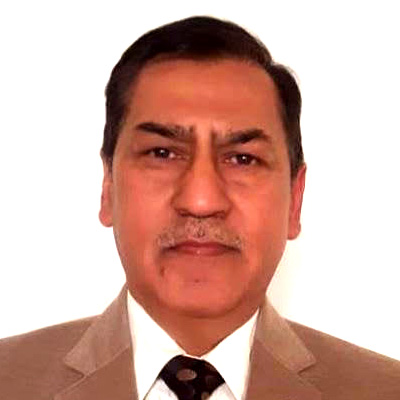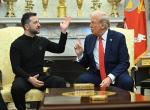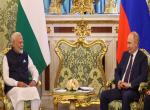In dealing with Pakistan polity, theatricals meant largely for domestic audiences are intrinsic, for these are planned and executed to finesse. As history provides us with references, the systemic is rigged in a deep devious manner, like a child-like game of one-upmanship, of deliberate outsmarting and then gloating! The recent visit of Pakistan Foreign Minister to Goa to ostensibly attend the SCO Council of Foreign Ministers is just a case in point of substantiation.
Pakistan is renowned for perpetual theatricals! At the age of 15, Zulfikar Ali Bhutto wrote a letter to Mohammad Ali Jinnah on 26 April, 1943. “Musalmans should realise that Hindus can never, will never unite with us”. Zulfikar Ali Bhutto’s on 22 September 1965, after the 1965 India-Pakistan war, spoke at UN Security Council, with all of drama at his command, “…let me tell the Security Council on behalf of my Government, that if now, after this last chance that we are giving the Security Council, it does not put its full force, full moral responsibility and full weight behind an equitable and honourable settlement of the Jammu and Kashmir dispute, Pakistan will have to leave the United Nations.”
After the 1971 war with India, Mr Bhutto spoke again on 15 December 1971 at the UN Security Council. It was drama personified when he tore up the ceasefire resolution, and stormed out with tears streaming! After walking out, he told the press: “I hate this body. I don’t want to see their faces again Why should I waste my time here in the Security Council? You can take your Security Council; here you are. I am going.” This Security Council was actually called into session hurriedly at Mr. Bhutto's request. As is apparent, it was all dramatic representation for home audiences, for Pakistan has never left the UNSC!
In 1987, with Indian and Pakistani troops massed in a tense border confrontation, Pakistani President Mohammed Zia ul-Haq arrived in Delhi, ostensibly not for diplomacy, but to watch an India-Pakistan cricket match. Zia came accompanied by a delegation of 68 government officials, sportsmen and family members. Before departure, General Ziaul-Haq, said to Indian PM Rajiv Gandhi said, ‘Mr Rajiv, you want to attack Pakistan, do it. But keep in mind that this world will forget Halaku Khan and Changez Khan and will remember only Ziaul Haq and Rajiv Gandhi, because this will not be a conventional war but a nuclear war.
There were lessons in the July 2001 Agra Summit, when media was manipulated by Pakistani President Pervez Musharraf, understanding the news-starved journalistic fraternity of India. Musharraf's media team comprising over a dozen officials drawn from the military and diplomatic corps mingled with the journalists, passing on tit-bits of truths, half-truths and imaginary information. There was a projectionist exercise in five-course breakfast cum press conference with editors of Indian media, all for perception management for home and international audiences! Indeed, the 2001 Summit was rigged by President Musharraf to the core.
This drama continues in full steam within Pakistan too. In recent times, the arrest drama for Mr Imran Khan, former Prime Minister of Pakistan, had all the hallmarks of theatre of the absurd. Lending a touch of the macabre, Mr Imran Khan had spoken of threats to his life weeks before he was thrown out of office. With great theatricals he ‘produced a letter’ purportedly containing details of the US conspiracy’ to oust him for being ‘unacceptable’ to Washington!
Lesser said of professionalism in rigging, the better! Cricketers of the Pakistan Cricket Team have been characteristically known for rigging. Former captain Saleem Malik and Salman Butt have been convicted. So were Mohammad Asif, Mohammad Amir, Danish Kaneria, Mohammad Irfan, Nasir Jamshed, Sharjeel Khan, Khalid Latif, Mohammad Nawaz, Naveed Arif, Atta-ur-Rehman, among others! Rigging and spot-fixing has been developed as a fine art in Pakistan!
Nic Cheeseman and Brian Klass’s wrote a book in 2018, How to Rig an Election. In Pakistan rigging of elections is a fine art too! Rigging in Pakistan elections is pre-poll, polling day rigging and post poll rigging, in connivance with state institutions, etc. It is an art to manipulate the census that is, gerrymandering, getting the opponent’s papers rejected, capturing poll booths, manipulating vote count, bribing the voters and perception management. General perception is that apart from elections that were held in 1970 that saw East Pakistan break away from West, none of the elections have been free and fair. In 1977, then Prime Minister Zulfikar Ali Bhutto, tried to get himself elected unopposed, by getting his opponent late Jan Mohammad Abbasi of Jamaat-i-Islami (JI) abducted from Larkana! This mastery in electoral rigging might be honourably called political engineering and carries on to diplomatic wrangling!
Speaking at the Institute of Strategic Studies Islamabad in June 2022, Mr Bhutto-Zardari had remarked tellingly that “…does it serve our objective that we have practically cut all engagement (with India)? That I, as Foreign Minister of Pakistan, as the representative of my country, not only don’t speak to the Indian government but I also don’t speak to the Indian people. Is that the best way to communicate or achieve Pakistan’s objective? If at that point in time, we had achieved economic engagement with India and our economic engagement on both sides had been to such a level that perhaps we would be in a position to more effectively influence Indian policy-making.” Having stated so, in December 2022 while in the US, Mr Bhutto as the top Pakistani diplomat made exceedingly coarse, abrasive and grossly unbecoming remarks of Pakistan against the Indian PM. Simply stated, the Pakistan Foreign Minister undertook the physical visit to Goa recently to ‘speak to Indian people’ and sought to ‘effectively influence Indian policy-making.’
On the recent physical visit to Goa to attend, the Council of Foreign Ministers of SCO Meet in Goa on 04-05 May 2023, there was a veritable cacophony in Pakistan against it. The internal economic and political situation in Pakistan is also in total turmoil with elections looming large. Before landing in India, he said his visit was "focussed exclusively on the SCO" and that he looked forward to "constructive discussions with my counterparts from friendly countries". Ms Hina Rabbani Khar (the Deputy Foreign Minister) had stated that it was not an India visit, but an SCO visit, a multilateral event and not a bilateral visit.
The expectations hence were low, of a non-consequential vanilla visit, except that there were lessons of history, of fixations in behavioural patterns, of drama and of home-constituency management. The expectations were belied especially in the press conference held by the Pakistan Foreign Minister for Pakistani journalists. The most telling and unbecoming remark when asked about the Indian decision of hosting G20 summit in Srinagar, the Foreign Minister said, “Obviously we condemn it and at the time we will give such a response that it will be remembered.” Indeed, as an invitee to a multilateral event, this threat of a ‘response’ is politically and militarily unbecoming and immature and way outside realms of decency and diplomatic decorum. On return to Pakistan, Mr Bilawal Bhutto Zardari gloated of his visit to Goa stating it was a "success" as he advocated his country's case on the soil of India.
The dramatic press conference with Pakistani journalists who had accompanied Mr Bhutto Zardari, was pre-planned, may be with pre-fed questions (including about G20 Tourism Meet in Kashmir), and well thought response. Best would have been to virtually attend the SCO CFM Meet from Islamabad, and rave and rant to own media. As it there is stated position that till Article 370 is restored, there will be no talks! The Foreign Minister had however to project himself as a strong future PM candidate, an endeavour that is on in Western capitals! In a physical visit, as is apparent, the home-constituency which had critiqued the visit vociferously had to be assuaged. This was even if it violated the spirit and charter of a multilateral organisation like SCO. Naturally, the rejoinder by the Indian External Affairs Minister was crisp and candid, with advice to smell the coffee. As is clear now, it was not a visit for any beginning of rapprochement, neither to seek support to alleviate the severe socio-economic hardships that the peoples of Pakistan are undergoing.
In sum, indignation apart this was not the first time, and indeed will not be last, when that Pakistan polity undertakes theatricals with a flourish, and rigs the events to suit its narrow ends. In any case in the hybrid democracy that Pakistan functions under, the ‘establishment” represented by the Army hierarchy would have had considerable lot to say on the visit, and what needed to be portrayed, irrespective of the fineness essential in diplomatic behaviour. The Pakistan military to retain its primacy has to ensure that the relations with India do not show an upswing. Inspite of very serious internal political and economic woes in Pakistan and the grave situation with Tehrike Taliban Pakistan (TTP) and on Afghanistan frontier, the basic intransigence with India remains as hithertofore.
(The paper is the author’s individual scholastic articulation. The author certifies that the article/paper is original in content, unpublished and it has not been submitted for publication/web upload elsewhere, and that the facts and figures quoted are duly referenced, as needed, and are believed to be correct). (The paper does not necessarily represent the organisational stance... More >>
Image Source: https://www.geo.tv/latest/486331-what-pakistan-achieved-from-bilawal-bhuttos-goa-visit











Post new comment